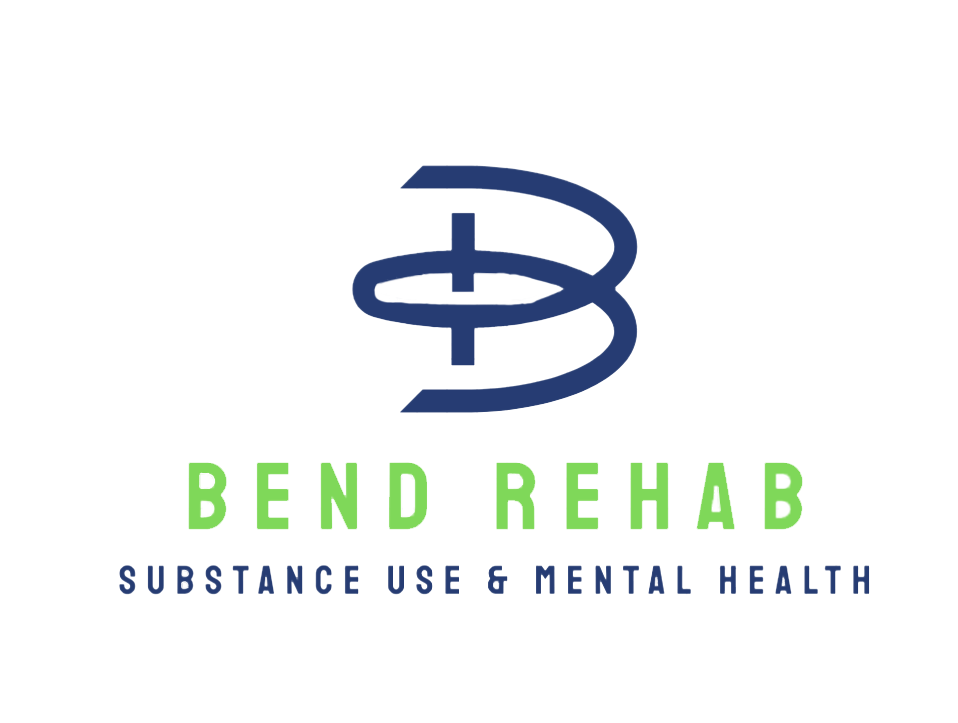Finding a Rehab Center in Bend Oregon
Navigating the process of finding the right rehab center in Bend Oregon can be overwhelming, especially when the stakes are so high. Whether it’s for yourself or a loved one, selecting the right facility is a critical step that can set the foundation for a successful recovery journey. This decision involves much more than simply searching for “Rehab Center in Bend Oregon” online—there are numerous factors to weigh, ranging from the types of treatment programs offered and the facility’s location to the qualifications of the staff, the center’s approach to aftercare, and the availability of family support options. In this guide, we’ll walk you through the key steps to choosing the best rehab center in Bend Oregon for your unique needs. Whether you’re struggling with addiction or supporting someone in their recovery, these practical insights will help you ask the right questions, identify your priorities, and make an informed and confident decision. Remember, finding the right rehab center is an investment in a healthier, brighter future.
Understand Your Needs and Goals
Before you start evaluating rehab centers, it’s crucial to clearly identify your needs and recovery goals. This begins with understanding the issue you’re facing, whether it’s substance addiction, alcoholism, or a co-occurring mental health disorder such as anxiety or depression. Take time to reflect on the challenges you want to overcome and the type of support you may need, whether that includes medical detox, therapy, or specific programs tailored to your circumstances. Knowing your personal goals will help you choose a rehab center in Bend Oregon that aligns with your path to recovery.
Questions to Consider:
- What specific type of addiction or mental health challenge are you addressing, such as substance abuse, anxiety, depression, or behavioral disorders?
- Are there any co-occurring disorders, such as anxiety, depression, or substance abuse, that also need to be addressed alongside the primary condition?
- Do you prefer a specific treatment philosophy, such as the 12-step model, which focuses on structured recovery steps, or a holistic approach that emphasizes overall well-being through methods like mindfulness, nutrition, and alternative therapies?
- Are you better suited for a short-term program (30 days), which provides an intensive, focused approach to recovery, or long-term care (90+ days), offering comprehensive support and more time to address deeper challenges? Understanding the duration that best fits your needs can play a key role in achieving lasting recovery.
Being clear about what you need—for example, dual diagnosis treatment for substance use and anxiety—can significantly narrow the list of options and save you time in your search. By identifying your specific needs, you can focus on rehab centers that specialize in your unique situation, offering tailored programs designed to address both substance use and underlying mental health conditions. This ensures you receive the most effective care for long-term recovery and overall well-being.
Research Different Rehab Centers
Once you’ve identified your needs, it’s time to thoroughly research rehab centers located in Bend, Oregon. This step is crucial to ensure the facility aligns with your preferences, values, and recovery goals. Look into the types of programs offered, such as inpatient or outpatient care, and consider whether the facility provides specialized treatments that fit your situation. Additionally, read reviews, speak with staff, and explore the center’s approach to creating a supportive recovery environment. Taking the time to gather this information will help you make an informed decision and set the foundation for a successful recovery journey.
Factors to Look For:
- Accreditation and Licensing
Look for rehab centers that are accredited by recognized organizations, such as the Commission on Accreditation of Rehabilitation Facilities (CARF) or The Joint Commission. Accreditation ensures that the center follows strict guidelines and provides quality care that meets established standards. Additionally, check if the facility is properly licensed, as this confirms it adheres to state and local regulations, ensuring a safe and professional environment for recovery. Taking the time to research these credentials can provide peace of mind and help you choose a facility you can trust.
- Success Rates and Reviews
Seek out testimonials from past clients or reviews on trusted platforms such as Google, Yelp, or the facility’s own website. Reading about the experiences of others who have completed the facility’s programs can provide valuable insights into the quality of care, the effectiveness of the programs, and the overall environment. It’s always helpful to hear firsthand accounts to gauge whether the facility aligns with your expectations and needs.
- Cost and Insurance Coverage
Rehab can be a significant financial investment, but planning ahead can help minimize stress and unexpected costs. Start by reviewing your insurance policy to understand what services are covered, such as inpatient or outpatient care, therapy sessions, or medication-assisted treatment. Knowing what costs will need to be paid out-of-pocket can also help you budget effectively. It’s a good idea to call the rehab centers directly to ask about their financing options, payment plans, and whether they accept your specific insurance plan. Taking these steps ensures you’re fully informed and can focus on your recovery journey without financial surprises.
Remember, the most expensive rehab doesn’t always mean it’s the best fit for everyone.
Consider Location and Environment
The location of the rehab center plays an often-overlooked but critical role in your recovery journey. The environment can significantly influence your mental well-being and your ability to focus on healing and adjusting to a new lifestyle. Consider whether a serene, secluded setting might help you disconnect from distractions, or if being closer to home and loved ones would better support your emotional needs. A carefully chosen location can make a meaningful difference in your overall recovery experience.
- Seclusion vs. Accessibility
Would you rather recover in a peaceful, secluded area surrounded by nature, or do you prefer staying close to home with access to urban conveniences? Bend, Oregon offers the best of both worlds. You can choose a tranquil setting near the stunning Cascade Mountains, with fresh air and serene natural beauty to aid your recovery, or opt for facilities closer to the town center, providing easy access to restaurants, shops, and other modern amenities. Whatever your preference, Bend has options to suit your needs and make your recovery as comfortable as possible.
- Environmental Triggers
Some people find it beneficial to recover away from familiar environments that may trigger memories of past substance misuse, such as neighborhoods, social circles, or specific locations tied to their old habits. A change of scenery can provide a fresh start and help them focus solely on their recovery journey. For others, staying closer to family and loved ones offers the emotional support and encouragement they need, creating a sense of stability and accountability during a challenging time. Both approaches have their own merits, depending on individual needs and circumstances.
Evaluate Treatment Programs
The heart of any rehab center is its treatment program, as it forms the foundation for recovery. By thoroughly assessing the program offerings, including therapies, personalized care plans, and support services, you can determine whether the facility aligns with your specific recovery needs. It’s important to consider factors such as the types of treatments available, the qualifications of the staff, and whether the program addresses both physical and emotional aspects of recovery. Taking the time to evaluate these details can help ensure you choose a center that provides the right support for your journey to healing.

Key Considerations:
- Range of Therapies
Does the rehab center offer a comprehensive range of treatments, combining evidence-based approaches like cognitive-behavioral therapy and medication with alternative therapies such as art therapy, yoga, or equine therapy? It’s important to ensure that the facility provides diverse options to address different needs and preferences, promoting holistic recovery and overall well-being.
- Dual Diagnosis Programs
If there’s a co-occurring mental health disorder, it’s crucial to choose a treatment center that is fully equipped and qualified to address both the addiction and the mental health condition. Look for a facility that offers integrated care, where a team of professionals works together to create a comprehensive, personalized treatment plan that tackles both issues simultaneously for better outcomes.
- Duration of Care and Aftercare Services
Look for facilities that offer a variety of flexible options to suit individual needs, including both short-term and long-term treatment programs. These programs should be tailored to address the unique challenges of each person’s recovery journey. Additionally, post-treatment support is critical for maintaining long-term sobriety. Aftercare services, such as sober living homes, counseling sessions, and alumni programs, play a crucial role in providing ongoing guidance and preventing relapse. These resources help individuals transition back into their daily lives while staying focused on their recovery goals.
Assess Staff Qualifications and Experience
The expertise of the rehab center’s staff is a critical component of effective treatment. You want to trust your recovery to highly qualified professionals who understand your challenges.
Questions to Ask:
- Are staff members properly licensed and certified to perform their roles, ensuring they meet all professional and industry standards?
- Do they have experience treating individuals with similar conditions or goals? It’s important to ensure they have a track record of working with people who share your specific needs, whether that’s managing a medical condition, recovering from an injury, or achieving a particular health or fitness goal.
- Is the staff-to-client ratio low enough to ensure that each client receives personalized, one-on-one attention and support tailored to their specific needs?
Highly trained professionals—such as medical doctors, licensed therapists, and addiction specialists—are better equipped to provide the tailored care needed for lasting recovery.
Additional Resources and Support
Recovery doesn’t end when the initial treatment program does; it’s an ongoing journey that requires continued effort and support. A comprehensive rehab program ensures this by extending its care beyond the initial phase, offering additional resources such as counseling, support groups, and relapse prevention strategies. These systems are designed to help individuals maintain their progress, build resilience, and navigate the challenges of long-term recovery.
What to Look for:
- Relapse Prevention Plans
Does the facility provide guidance on helping clients identify their personal triggers and develop effective coping mechanisms to manage stress, cravings, or other challenges they may face in their daily lives?
- Community Support
Are there active alumni groups or opportunities to connect with local support meetings like Alcoholics Anonymous (AA) in Bend? It would be helpful to know if there are regular gatherings, community events, or resources available for those seeking ongoing support and connection in the area.
- Family Inclusion
Some rehab centers offer family therapy sessions or education programs, providing loved ones with valuable tools and resources to support recovery. These programs may include guidance on effective communication, setting boundaries, and understanding the challenges of addiction, helping families play a positive role in the healing process.
Engage Your Support System
Choosing a rehab center can feel overwhelming, but you don’t have to face this decision alone. Your support system—whether it’s family, friends, or a trusted therapist—can be a vital resource in helping you navigate this important step. Take the time to have honest and open discussions with them about what you’re looking for in a facility, such as specific treatments, location, or amenities. They can help you research options and provide valuable insights you may not have considered. Ask them to accompany you to facility tours or join you during consultation calls to evaluate programs together. Their perspective and emotional support can provide clarity, helping ensure you’re making the best choice for your long-term recovery and overall well-being. Remember, involving those who care about you can make this process feel less daunting and more empowering.
Trust Your Instincts
Finally, as you assess potential rehab centers, listen closely to your gut instinct. While research, reviews, and data are incredibly helpful tools in making an informed decision, the ultimate choice should be based on how the facility makes you feel. Pay attention to your interactions with staff—do they seem compassionate and attentive? Does the environment feel welcoming and respectful? The right rehab center should make you feel safe, valued, and empowered to take the first steps toward recovery. If something feels off or doesn’t sit well with you during the evaluation process, trust yourself, and don’t hesitate to keep searching. Recovery is a deeply personal journey, and the ideal rehab center will not only meet your clinical needs but also create a supportive, nurturing space where you can truly begin to heal and rebuild.
Conclusion
Choosing the right rehab center in Bend, Oregon is a significant and life-changing step toward achieving lasting sobriety and mental wellness. It’s important to take the time to fully understand your unique needs, such as the type of treatment required, whether it’s for substance abuse, mental health, or a dual diagnosis. Researching available options and comparing facilities is key, as each rehab center may offer different approaches to recovery, from evidence-based therapies to holistic treatments. Evaluating program offerings, the qualifications of the staff, and the level of personalized care provided can help ensure you find a facility that aligns with your goals. Don’t forget to involve your support system—trusted family or friends can provide emotional guidance and help you make an informed decision. Remember, the road to recovery isn’t one you have to travel alone. Our compassionate staff is awaiting your call so don’t hesitate to contact us today by calling 1 (541) 802-7214 or clicking Bend Rehab. There are resources and compassionate professionals ready to help you start your journey so take back control of your life today.




